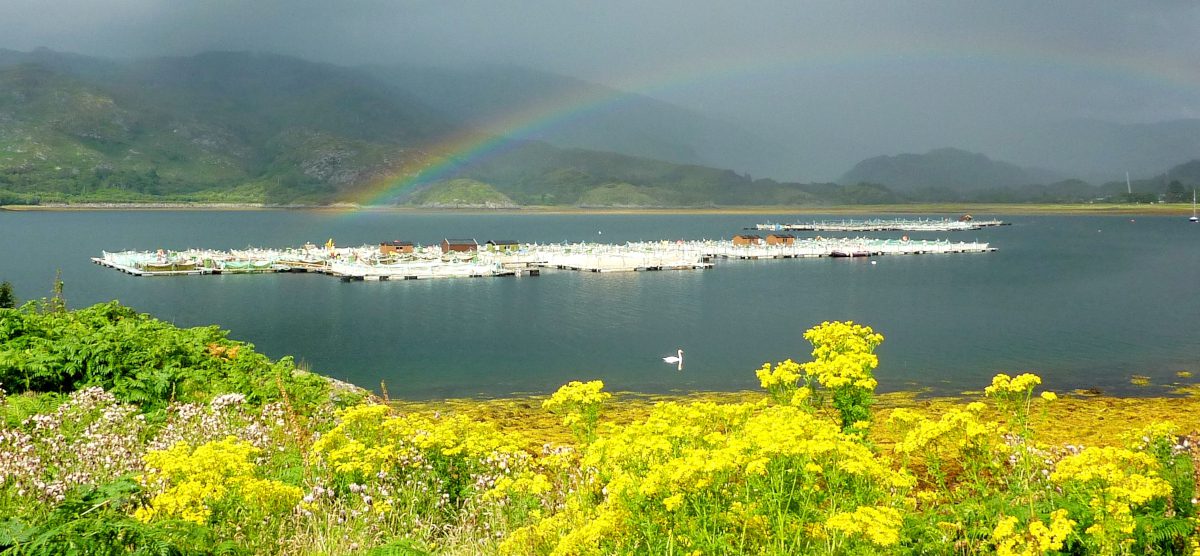
The Aquaculture Stewardship Council discusses an accreditation scheme that aims to ensure this activity is undertaken responsibly, with minimal environmental impacts. The group also attempts to address some of the misinformation and controversies that it says have accrued to the topic of farmed seafood.
The ASC (Aquaculture Stewardship Council) is the world’s leading certification scheme for farmed seafood (also known as aquaculture). Aquaculture produces over half of the seafood eaten around the world and will be vital in providing healthy, affordable protein to the world’s rapidly growing population in the future as well as protecting wild stocks. It also provides an alternative source of protein to land-based meat which tends to require less energy, fresh water, and land.
But like all food production, it has impacts and must be done responsibly. The ASC label only appears on food from farms that have been independently assessed to meet the highest environmental and socially responsible standards in the industry, from water quality to disease prevention.
ASC Certification for Scottish Salmon
ASC certification has been available to salmon farms around the globe but previously, very few Scottish farms have been able to attain this because the way they produce young salmon (smolts) wasn’t covered by the ASC standards. However, a recent update to the standards now covers this method of production, meaning Scottish salmon farms can now apply to demonstrate they are farming responsibly. This is a thorough process, not something that can be achieved overnight, but we are already seeing a number of farms achieving certification and more undergoing the certification process.
Why is this change important?
• For the first time ever, consumers will be able to choose farmed Scottish salmon with the ASC label – safe in the knowledge that this healthy protein choice is responsibly produced.
• By having ASC certified Scottish salmon available for consumers for the first time, more of the population may be tempted to make this affordable salmon a part of their diet, encouraging a healthier and balanced lifestyle.
• Social and environmental ethics have never been such a driving force in consumer food choice – so producers need to keep up with demands.
• Scottish salmon farmers can tap into the growing demand for sustainably and ethically produced food: leading to potentially growing profits for rural farmers to spread and support local rural economies.
• Retailers and restaurants can offer and promote to their customers farmed Scottish salmon that is in line with their moral values.
What’s the controversy around farmed salmon?
There are misconceptions around farmed salmon – certain campaigning groups are claiming that the process of farming salmon has negative environmental impacts. For example: that the concentration of animal waste produced in farms is harmful for the local waters, escaped fish can disrupt the wild ecology and sea lice can spread to wild populations.
However:
• ASC certified salmon farms are required to measure various water parameters (phosphorus, oxygen levels, etc.) at regular intervals and remain within set limits.
• ASC certified salmon farms must demonstrate they are preventing fish escapes through actions such as employee training, net strength testing, and highly accurate fish counting technology.
• Management of sea lice is a critical factor of the ASC standard for responsible farming – for example, ASC certified salmon farms must work with other farms (even if they are not ASC certified) in their area to create an Area Based Management plan to minimise the collective impact of the farms. There are strict limits for sea lice levels for farms during sensitive periods for local wild populations, and there are also limits on the use of chemical treatments for sea lice.
All food production has impacts, and there’s no doubt that aquaculture can have negative environmental and social consequences if it’s managed irresponsibly – but this is why the ASC is so needed. Farmed seafood is necessary to protect land from the effects of increased agriculture as the world searches for solutions to produce enough protein-rich food for our every-growing populations.
Aquaculture is here to stay – so it needs to be responsibly managed and held to the strictest and highest standards: the standards of the ASC. Rather than campaigning to shut down an industry which is needed to support the future, we should be working to make it a sustainable and socially responsible practice.







